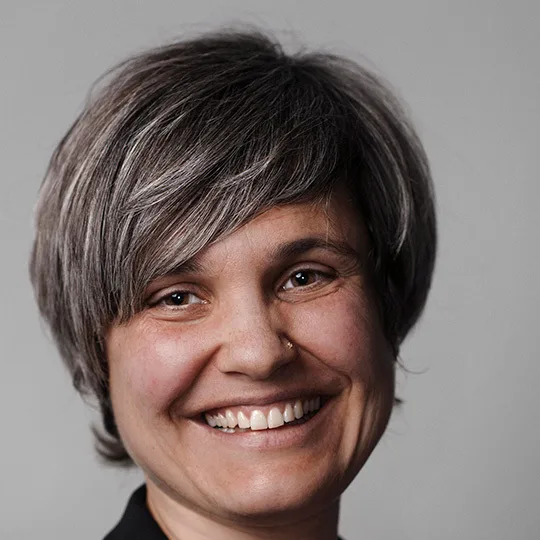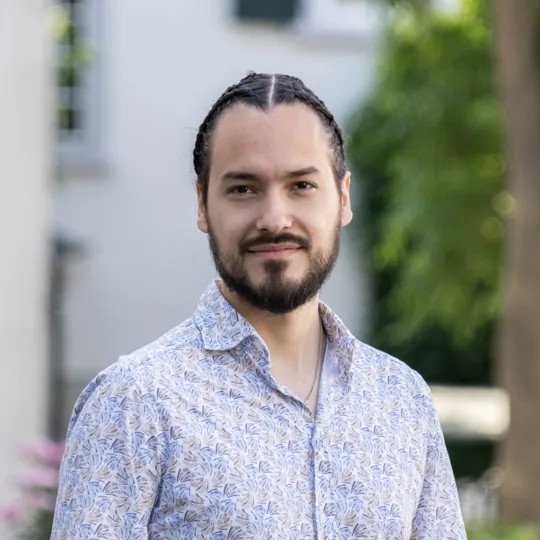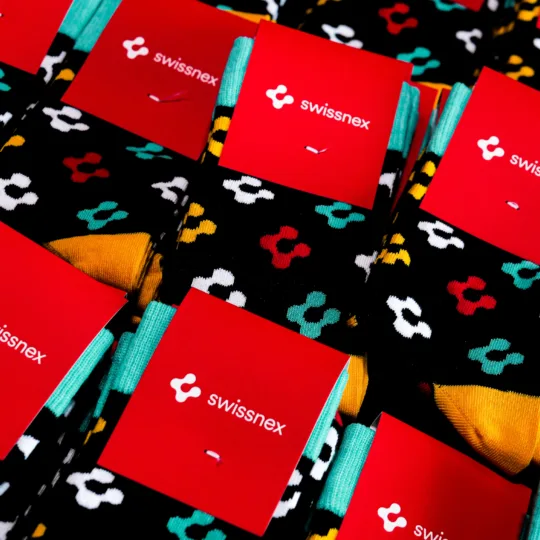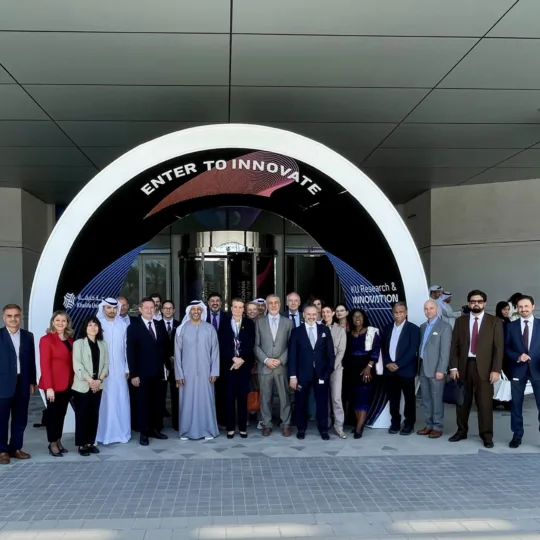Priorities for international cooperation in education
Swiss international competitiveness and innovation depend on excellent education and research. This includes international cooperation and mobility involving the world's best students and researchers.
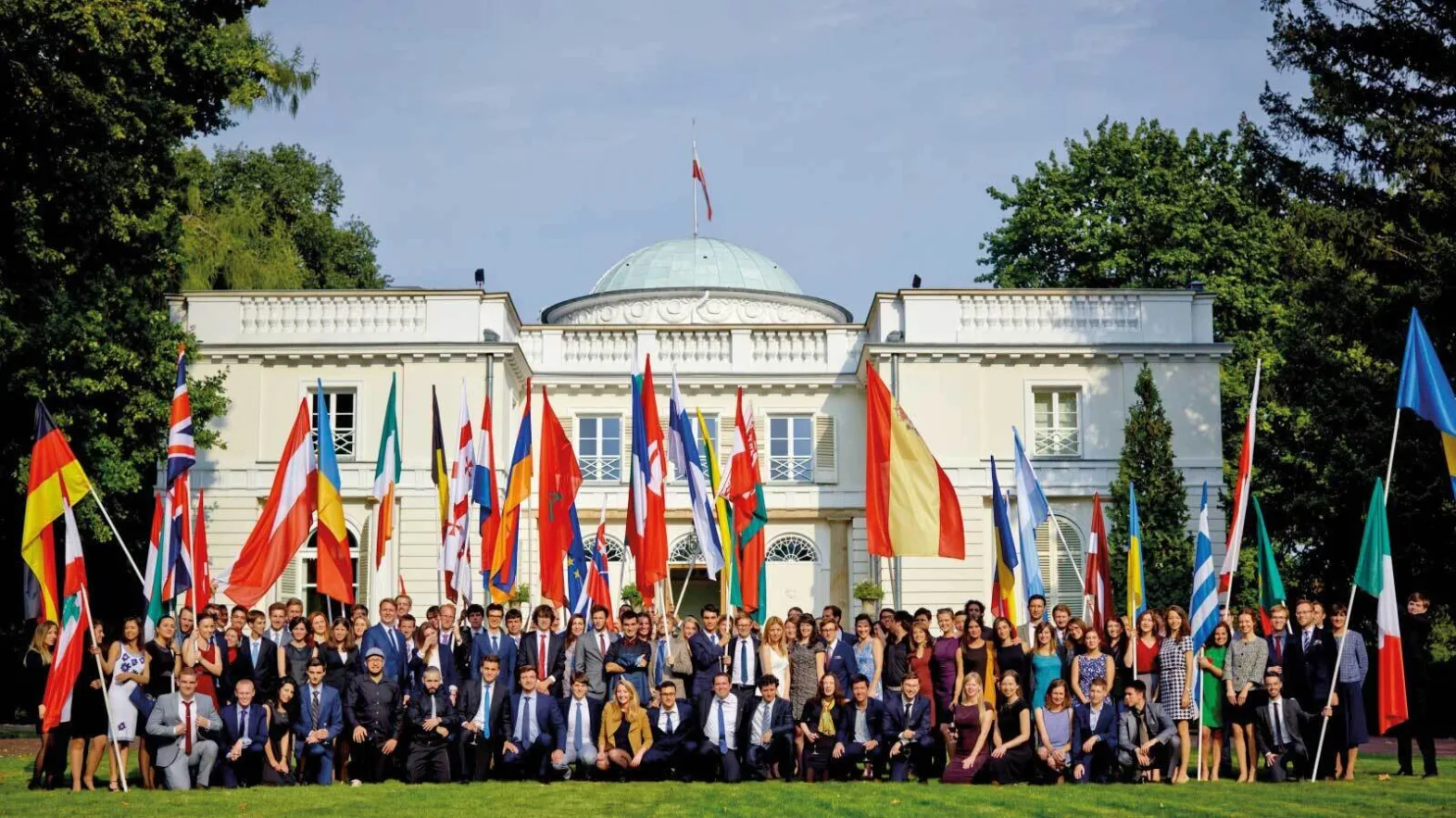
Switzerland has a long tradition of encouraging exchanges and mobility in education through EU education programmes and the Swiss Erasmus+ programme. The State Secretariat for Education, Research and Innovation (SERI) also supports additional projects and activities relating to international cooperation in education. An important education, research and innovation policy concern, for example, is to support next-generation scholars and researchers. Here, SERI prioritises innovative strength and creativity through the targeted development and dissemination of specialist knowledge. This is achieved by means of Swiss participation in networks of experts in fields where there is still untapped scientific potential. Federal funding is intended for various organisations and institutions that pursue education and research activities.
Support for the next generation of scholars and researchers
SERI provides subsidiary funding, for example, for the Science Olympiads, the Swiss Youth in Science Foundation and the Swiss Study Foundation, which are jointly committed to supporting talented young people in their education from primary to tertiary level. Early nurturing of talent is an important education policy objective as this helps to awaken young people's interest in such fields as science, technology, engineering, and mathematics (STEM) at an early age. As a result of this support, adolescents and young adults from Switzerland have successfully demonstrated their knowledge and skills at international competitions in numerous disciplines. As such, they are ambassadors for Switzerland, underscoring its international relevance as an ERI location.
Support for transdisciplinary scientific excellence
As countries become increasingly interconnected, there is a growing need for institutions to allow their researchers to share their ideas internationally across multiple disciplines. Here, institutes for advanced study (IAS) play a key role.
One of the institutions that receives federal funding is the Wissenschaftskolleg zu Berlin (WIKO), which was founded in 1980. Each year, WIKO awards a fellowship to 45 researchers from all over the world. These fellowships provide space for transdisciplinary research and exchange based on the criterion of excellence. Over a period of about ten months, they pursue a project of their choice, mostly in the humanities, social sciences and natural sciences. However, there are also composers, writers, journalists, directors and diplomats of both sexes who further enrich this transdisciplinary exchange.
WIKO has close ties with the New Europe College (NEC) in Bucharest, founded in 1994, and the Centre for Advanced Study (CAS) in Sofia, founded in 2000. While SERI does not provide any direct funding to the NEC and CAS, it works with the University of St. Gallen's Center for Governance and Culture in Europe (GCE-HSG). Among other things, these three institutes work together to coordinate their research in the humanities and social sciences in the Black Sea region. The purpose of federal funding is to develop and consolidate Swiss expertise in the area of Eastern European Studies. SERI thus pays particular attention to establishing and deepening contacts with countries where Switzerland has barely or only minimally exploited their considerable scientific potential.
The federal government also provides funding to another IAS, the Institut d'Etudes Avancées in Nantes, which works with the University of Fribourg. This funding helps further the aim of expanding the international activities of Swiss higher education institutions with partner institutions in other countries.
Cooperation with competence centres abroad
GCE-HSG is just one of several competence centres specialised in Eastern European Studies at Swiss universities that benefit from federal funding for international cooperation in this multi-disciplinary field. Two noteworthy examples include the Department of History at the University of Basel, which receives funding under the 'Ukrainian Research in Switzerland' initiative, and the Center for Eastern European Studies at the University of Zurich. This funding helps to develop Swiss expertise in Eastern Europe.
Other examples include the University of Zurich's Europa Institut, which works with corresponding university institutes in Eastern Europe and the USA on matters pertaining to international and European law or the University of Neuchatel, which maintains collaborative ties with the Centre international de Mathématiques Pures (CIMPA) in Nice. The latter is specialised in mathematics, focusing in particular on helping talented scholars from countries in the global South. By working with CIMPA, Switzerland is able to expand its own network accordingly. Finally, SERI provides funding for cooperation between the Lucerne University of Teacher Education and the Yad Vashem International Institute for Holocaust Research in Jerusalem, thus contributing to cultures of remembrance and the teaching of history. The aim is to raise awareness among future teachers by encouraging study visits, international networking and international comparative educational research.
SERI also provides funding for scholarships to the College of Europe in Bruges/Natolin and the European University Institute (EUI) in Florence. Most of these scholarships are awarded to particularly talented graduates from Switzerland. The Swiss Chair in Federalism, Democracy and International Governance at the EUI is funded in the same context. These funding mechanisms greatly contribute to preparing the next generation of young scholars and business leaders.
Specialised events and workshops
International cooperation in education also includes other projects and activities that address multi-disciplinary topics. SERI provides funding for international workshops, events, networks and other international exchange activities relating to such things as education for sustainable development, equal opportunities, forestry, children's rights, ancient history, adult education, ethics and drama. On the latter topic, the Bern University of the Arts regularly hosts meetings between representatives of theatre schools in Germany, Austria and the German-speaking region of Switzerland.
Cooperation between these three countries can also be seen at the International Conference of Teachers of German (IDT). The IDT is the largest forum for German as a foreign and second language worldwide. The motto for the 17th IDT, which was held this year in Vienna, was ‘mit.sprache.teil.haben’. The event drew around 2,700 participants who met to exchange views, both in person and online, on a variety of issues relating to adult education, the interplay between theory and practice, and the professional and political positioning of German as a foreign and second language.
Wide range of different forms of cooperation - specific priorities
International cooperation in education is becoming increasingly important. The Swiss Confederation therefore feels that it is important that the funding provided for specific projects and activities be based on a clear set of priorities. At the same time, Switzerland continuously explores options for further development of international cooperation in education. The various priorities include helping young people to pursue academic studies, raising international awareness of Swiss support programmes in this area, encouraging scientific excellence and cooperation with competence centres worldwide in a variety of disciplines. Switzerland also seeks to promote Eastern European studies and cross-cutting topics such as equal opportunities and sustainable development. Corresponding projects may be eligible for funding if they further education policy objectives.
Contact
Author
